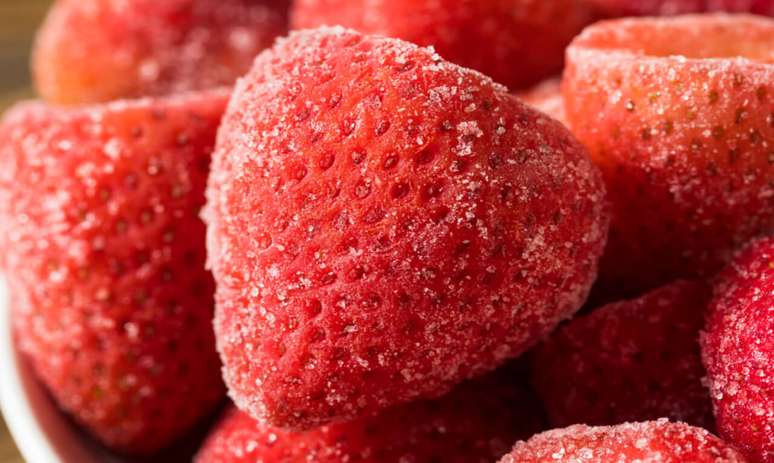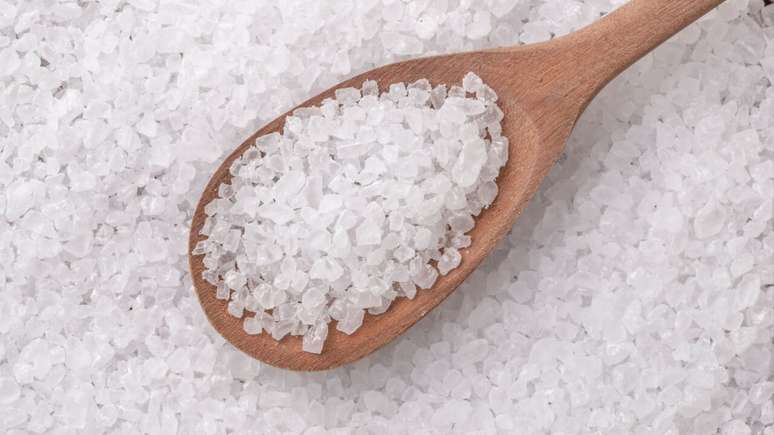Frozen fruit may be more convenient and refreshing on a daily basis, but does the practice pay off nutritionally?
Frozen fruit is a good option for cooling off on hot days and allows you to maintain a healthy diet even in a hectic routine. Furthermore, it is also a way to lengthen the shelf life of these foods, guaranteeing greater savings. But is it worth the nutritional point of view to freeze them?
html[data-range=”xlarge”] figure image img.img-4bf43410d530fc4e99b6163151dd171dpmdlsomg { width: 774px; height: 463px; }HTML[data-range=”large”] figure image img.img-4bf43410d530fc4e99b6163151dd171dpmdlsomg { width: 548px; height: 328px; }HTML[data-range=”small”] figure image img.img-4bf43410d530fc4e99b6163151dd171dpmdlsomg, html[data-range=”medium”] figure image img.img-4bf43410d530fc4e99b6163151dd171dpmdlsomg { width: 564px; height: 337px; }HTML[data-range=”small”] .article__image-embed, html[data-range=”medium”] .article__image-embed { width: 564px; margin: auto 0 30px; }
According to Dr. Lorena Balestra, the answer to this question is not that simple. This is because nutrient retention after freezing depends on factors such as how long it takes to freeze. “It is true that, in general, harvesting it at the peak of ripeness and quick freezing can preserve the nutritional benefits, i.e. we should freeze it as soon as we buy the food,” explains Lorena.
Benefits of frozen fruit
An advantage, according to the doctor, is the fact that they last for several months, which can be an economical and practical option for those looking to always have fruit available, even out of season.
Plus, when you buy fruit that’s already frozen and prepped, like strawberry slices ready for a delicious smoothie, you’re saving time preparing meals on a busy day. Fresh foods are also rich in nutrients, but they need to be eaten faster if we want to make the most of their vitamins.
The important thing is to understand that, in general, the health benefits of consuming fresh and frozen fruit are very similar. Each option has its own particularities and, depending on the food and how it will be used, both can be beneficial for nutrition.
The best way to freeze your fruits
Dr. Lorena points out that it is important to take care of fruit hygiene to avoid contamination by harmful germs, such as salmonella and E. coli. Therefore, washing fruit well before consumption, especially fresh fruit, is a simple measure that can help reduce the risk of foodborne illness.
It is important to follow a few guidelines to ensure that the process is efficient. Watch:
- Choose fresh, ripe fruit: Fruits at their ideal point of ripeness have a higher nutrient content.
- Wash well: Before freezing it is essential to wash the fruit to remove pesticide residues and dirt.
- Remove seeds and pits: Some fruits have seeds and pits that can affect texture after freezing.
- Cut into small pieces: Large fruits can freeze unevenly, so it is recommended that you cut them into smaller, even pieces.
- Use suitable containers: Store fruit in freezer-safe bags or jars, removing as much air as possible.
- Avoid the formation of ice crystals: The faster the freezing process, the less ice crystals are formed which can affect the nutritional quality.
- Consume within a reasonable time: While freezing helps preserve nutrients, some may still go bad over time. Try to consume frozen fruits within a reasonable amount of time to get the best nutritional value.
Freezing fruit can be a great option to preserve its quality and extend its availability throughout the year. However, it is essential to understand that the choice between fresh and frozen fruit will depend on the type of fruit and how it will be consumed, Lorena points out.
Therefore, always consult a qualified healthcare professional for personalized and safe guidance on the best nutritional approach for your individual needs.
Source: Terra
Ben Stock is a lifestyle journalist and author at Gossipify. He writes about topics such as health, wellness, travel, food and home decor. He provides practical advice and inspiration to improve well-being, keeps readers up to date with latest lifestyle news and trends, known for his engaging writing style, in-depth analysis and unique perspectives.








